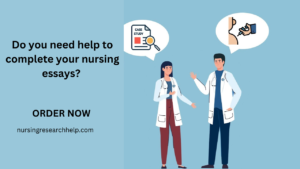QUALITATIVE VS. QUANTITATIVE RESEARCH IN NURSING-Updated2025
QUALITATIVE VS. QUANTITATIVE RESEARCH IN NURSING-Updated2025

Introduction
Nursing is a dynamic and ever-evolving profession, deeply rooted in the principles of evidence-based practice. In today’s healthcare landscape, research plays a pivotal role in shaping nursing practices, improving patient outcomes, and addressing the complexities of modern care. Two primary research methodologies—qualitative and quantitative—serve as essential tools for generating knowledge and advancing the nursing discipline. Understanding the importance QUALITATIVE VS. QUANTITATIVE RESEARCH IN NURSING-Updated2025 is crucial for fostering innovation and delivering high-quality care.
Importance of Research in Nursing
Research is the backbone of nursing practice. It bridges the gap between theory and real-world application, ensuring that nursing interventions are grounded in evidence rather than tradition or intuition. Here’s why research is indispensable in nursing:
- Enhancing Patient Outcomes
Research provides insights into effective interventions, enabling nurses to make informed decisions that improve patient care. For instance, studies on wound care protocols have led to the development of advanced dressings and techniques that accelerate healing and reduce infection rates.
- Supporting Evidence-Based Practice
Evidence-based practice (EBP) is a cornerstone of modern nursing. It combines clinical expertise, patient preferences, and the best available research evidence to guide decision-making. Without robust research, EBP would lack the foundation needed to address clinical challenges effectively.
- Addressing Emerging Healthcare Challenges
Healthcare systems constantly face new challenges, from global pandemics to chronic disease management. Research equips nurses with the knowledge to adapt and respond to these challenges. For example, research on telehealth during the COVID-19 pandemic provided valuable insights into remote patient monitoring and virtual consultations.
- Promoting Professional Development
Engaging in research empowers nurses to develop critical thinking skills, stay updated on advancements, and contribute to the growth of their profession. It fosters a culture of inquiry, where nurses actively question and seek solutions to improve care delivery.
- Informing Policy and Practice
Research findings influence healthcare policies, protocols, and standards of care. Studies on nurse-to-patient ratios, for example, have prompted policy changes to ensure adequate staffing levels, leading to better patient outcomes and reduced burnout among nurses.
- Bridging Gaps in Knowledge
Through research, nurses can explore under-studied areas, such as the experiences of marginalized populations or the impact of cultural factors on care delivery. This contributes to a more inclusive and comprehensive understanding of healthcare.
Real-World Example of Research Impact
A landmark study on infection control practices demonstrated that proper hand hygiene could significantly reduce hospital-acquired infections. This simple yet evidence-backed intervention has since become a global standard, saving countless lives.
Defining Qualitative and Quantitative Research
To appreciate the value of research in nursing, it is essential to understand the two primary methodologies: qualitative and quantitative research. Each approach offers unique insights and plays a distinct role in advancing nursing knowledge.

What Is Qualitative Research?
Qualitative research seeks to understand human experiences, perceptions, and behaviors. It is exploratory and focuses on answering “why” and “how” questions. Unlike quantitative research, which relies on numerical data, qualitative research emphasizes narrative data, such as words, emotions, and observations. This approach is particularly valuable for studying complex, subjective phenomena like patient experiences, cultural influences, and interpersonal dynamics.
Key characteristics of qualitative research include:
- Open-ended questions and flexible study designs.
- Data collection through interviews, focus groups, and observations.
- Analysis focused on themes, patterns, and meanings.
For example, a qualitative study might explore how cancer patients perceive their quality of life during treatment, providing insights that quantitative surveys might overlook.
What Is Quantitative Research?
Quantitative research, on the other hand, is data-driven and focuses on measuring variables to test hypotheses or answer specific questions. It seeks to establish patterns, relationships, and cause-and-effect dynamics. Quantitative studies often involve large sample sizes and statistical analysis, making them ideal for generalizable findings.
Key characteristics of quantitative research include:
- Structured study designs with predefined variables.
- Data collection through surveys, experiments, and clinical trials.
- Use of statistical tools for data analysis.
For instance, a quantitative study might examine the effectiveness of a new medication in reducing blood pressure, using measurable outcomes like systolic and diastolic readings.
Comparing the Two Approaches
| Aspect | Qualitative Research | Quantitative Research |
| Purpose | Explores meanings, experiences, and perceptions. | Measures variables and tests hypotheses. |
| Data Type | Descriptive and narrative (words, behaviors). | Numerical and statistical (numbers, percentages). |
| Methods | Interviews, focus groups, observations. | Surveys, experiments, clinical trials. |
| Outcome | Contextual understanding. | Generalizable findings. |
Why Both Methods Are Essential in Nursing
While qualitative research provides depth and context, quantitative research offers objectivity and precision. Together, they complement each other, offering a holistic understanding of nursing phenomena. For example, a mixed-methods study might use surveys (quantitative) to measure patient satisfaction and interviews (qualitative) to explore the reasons behind those satisfaction levels.
By understanding the importance of research and the distinct roles of qualitative and quantitative methodologies, nurses can contribute meaningfully to evidence-based practice, improving care for individuals and populations alike.

Overview of Research in Nursing
Research in nursing serves as a foundation for improving healthcare quality, driving innovation, and addressing complex challenges in patient care. It provides the evidence needed to inform clinical decisions, shape policies, and ensure that nursing practices remain current and effective. A thorough understanding of research and its methodologies—qualitative, quantitative, and mixed methods—is essential for nurses to deliver evidence-based, patient-centered care.
Role of Evidence-Based Practice
Evidence-based practice (EBP) is a cornerstone of modern nursing, integrating clinical expertise, patient preferences, and high-quality research evidence to guide healthcare decisions. This approach ensures that nursing interventions are not only effective but also tailored to meet the unique needs of patients and populations.
- Bridging the Gap Between Theory and Practice
EBP connects academic research to the realities of clinical care. By translating research findings into actionable guidelines, EBP helps nurses move beyond intuition or tradition, ensuring their practices are grounded in the latest evidence.
For instance, studies on pressure ulcer prevention have led to the adoption of risk assessment tools like the Braden Scale, empowering nurses to identify at-risk patients early and implement preventive measures.
- Enhancing Patient Safety and Outcomes
Research-backed protocols minimize risks and improve patient outcomes. For example, evidence supporting fall prevention strategies has prompted hospitals to implement fall risk assessments and interventions, reducing injuries and associated costs.
- Supporting Continuous Learning
EBP fosters a culture of inquiry and lifelong learning among nurses. It encourages professionals to critically evaluate existing practices, seek out new knowledge, and adapt to emerging healthcare challenges, such as advancements in telehealth or treatments for chronic conditions.
- Driving Policy Changes
Research informs policies that shape healthcare delivery and resource allocation. For instance, studies highlighting the benefits of nurse-led clinics in managing chronic diseases have influenced funding and policy decisions, expanding access to care for underserved populations.
- Promoting Interdisciplinary Collaboration
EBP thrives on collaboration between researchers, clinicians, and policymakers. This teamwork ensures that research findings are not only robust but also practical and applicable across diverse healthcare settings.
Real-World Example
The adoption of evidence-based infection prevention practices, such as hand hygiene protocols and antimicrobial stewardship programs, has significantly reduced hospital-acquired infections worldwide. This transformation demonstrates the power of EBP in improving healthcare systems globally.
Why Research Methods Matter in Healthcare
Research methods determine how data is collected, analyzed, and interpreted, directly influencing the quality and applicability of findings. In nursing, the choice of research method—qualitative, quantitative, or mixed methods—depends on the research question, objectives, and the type of data needed to address a problem effectively.
- Tailoring Approaches to Address Complex Issues
Healthcare challenges are multifaceted, often requiring a combination of research methods for comprehensive solutions.
- Qualitative research explores patient experiences, shedding light on emotional and cultural factors that impact care.
- Quantitative research measures outcomes, such as medication effectiveness or patient recovery rates, providing objective data.
For example, a study on pain management might use qualitative methods to understand patient perceptions and quantitative methods to assess the effectiveness of different interventions.
- Ensuring Rigor and Reliability
The methodology shapes the rigor of a study. Quantitative methods rely on structured protocols and statistical tools to produce reliable, replicable findings. Qualitative methods, while less structured, offer depth and context, ensuring that the human elements of healthcare are not overlooked.
- Informing Best Practices
Research methods influence how findings are translated into practice. Quantitative studies might identify trends or risk factors, while qualitative studies provide the context needed to design interventions that align with patient needs.
For instance, a quantitative study might show a high rate of medication non-adherence among diabetic patients. A qualitative follow-up could reveal that cultural beliefs and financial barriers are significant contributors, leading to the development of culturally sensitive education programs.
- Facilitating Innovation
Research methods drive innovation by enabling nurses to explore new interventions, technologies, and care models. For example, experimental studies have tested telehealth solutions for rural populations, while qualitative studies have explored patient satisfaction with these services.
- Strengthening Advocacy Efforts
Robust research provides the evidence needed to advocate for resources, policy changes, and systemic improvements. For instance, data on nursing burnout rates has highlighted the need for better staffing policies and mental health support for healthcare workers.

Case Study: Addressing Healthcare Disparities
A mixed-methods study exploring disparities in prenatal care among minority populations combined:
- Quantitative analysis to identify trends in access to care.
- Qualitative interviews to understand barriers faced by expectant mothers.
The findings informed targeted interventions, such as community-based prenatal programs, that improved outcomes for underserved populations.
Research in nursing is more than a tool for academic inquiry—it is a vital component of improving care delivery, advancing the profession, and addressing the diverse needs of patients. By understanding and leveraging appropriate research methods, nurses can contribute to a healthcare system that is more effective, equitable, and evidence-based.
What Is Qualitative Research?
Qualitative research is a cornerstone of nursing inquiry, designed to explore and understand human experiences, behaviors, emotions, and perceptions in depth. Unlike quantitative research, which focuses on numerical data and measurable outcomes, qualitative research delves into the complexities of subjective experiences, emphasizing the meaning behind actions, thoughts, and feelings. In nursing, this approach is particularly valuable for understanding patient experiences, cultural dynamics, and the nuanced aspects of care delivery.
Definition and Characteristics
Definition
Qualitative research is a systematic approach to exploring phenomena through the collection and analysis of non-numerical data, such as words, observations, and narratives. It seeks to answer “why” and “how” questions, providing a rich, contextual understanding of issues that cannot be captured by numbers alone.
For example, a qualitative study might examine how patients with chronic pain perceive their quality of life, offering insights into their emotional and psychological struggles that quantitative surveys might overlook.
Key Characteristics of Qualitative Research
- Exploratory Nature:
Qualitative research aims to uncover new perspectives and insights, often addressing areas where little prior knowledge exists. - Focus on Context:
This method emphasizes understanding phenomena within their natural settings, considering the cultural, social, and environmental factors that influence experiences. - Flexible and Open-Ended Approach:
Unlike structured quantitative studies, qualitative research allows for adaptability in study design and data collection, enabling researchers to respond to emerging themes and findings. - Subjectivity and Interpretation:
The researcher plays an active role in interpreting data, acknowledging their perspective while striving for credibility and authenticity. - Rich, Descriptive Data:
Data is collected through detailed observations, interviews, and narratives, resulting in findings that are textual and descriptive rather than numerical. - Small Sample Sizes:
Qualitative studies typically involve smaller, purposefully selected samples to achieve depth rather than breadth in understanding. - Thematic Analysis:
Data analysis focuses on identifying patterns, themes, and meanings within the collected information, offering a comprehensive view of the studied phenomenon.
Common Methodologies
Qualitative research encompasses several methodologies, each tailored to specific research questions and objectives. Below are some commonly used approaches in nursing research:
- Phenomenology
Phenomenology explores the lived experiences of individuals, aiming to understand how they perceive and make sense of their experiences. It seeks to uncover the essence of a phenomenon by delving into participants’ personal narratives.
- Example in Nursing: A phenomenological study might examine how patients with terminal illnesses experience end-of-life care, shedding light on their emotional and spiritual needs.
- Data Collection Methods: In-depth interviews, reflective journals, and first-person accounts.
- Strengths: Provides deep insights into individual experiences, making it ideal for understanding subjective phenomena like pain, grief, or resilience.
- Ethnography
Ethnography focuses on the cultural aspects of human behavior, studying how cultural beliefs, practices, and environments influence actions and decisions. This approach is particularly useful for examining healthcare disparities and cultural competence in nursing.
- Example in Nursing: An ethnographic study could investigate how cultural beliefs impact medication adherence among immigrant populations.
- Data Collection Methods: Participant observation, field notes, and interviews.
- Strengths: Offers a comprehensive understanding of cultural influences, enabling nurses to deliver more culturally sensitive care.
- Grounded Theory
Grounded theory aims to develop theories grounded in real-world data. It is often used to explore processes, behaviors, or interactions, making it suitable for studying complex, dynamic phenomena in nursing.
- Example in Nursing: A grounded theory study might explore how nurses develop coping strategies in high-stress environments, such as intensive care units.
- Data Collection Methods: Semi-structured interviews, focus groups, and iterative data analysis.
- Strengths: Generates practical theories that inform nursing practices and policies.
- Narrative Research
Narrative research focuses on the stories people tell, analyzing how these narratives shape their identities, experiences, and understanding of the world. It is particularly valuable for exploring individual patient journeys.
- Example in Nursing: A narrative study might examine how cancer survivors articulate their recovery journeys, providing insights into factors that promote resilience.
- Data Collection Methods: Storytelling sessions, biographical accounts, and case histories.
- Strengths: Captures the uniqueness of individual experiences, offering a personalized perspective on healthcare challenges.
- Case Study
Case studies involve an in-depth exploration of a single case, such as an individual, group, or organization, to gain a comprehensive understanding of the phenomenon under investigation.
- Example in Nursing: A case study could focus on a specific patient with a rare condition, analyzing their treatment journey to inform future care strategies.
- Data Collection Methods: Multiple sources, including interviews, medical records, and observations.
- Strengths: Provides detailed insights into specific cases, contributing to the development of best practices.
Why Qualitative Research Matters in Nursing
Qualitative research offers a unique lens to understand the human elements of healthcare. By capturing the voices and experiences of patients, families, and healthcare providers, it provides the contextual depth necessary for delivering compassionate, patient-centered care. It also complements quantitative research by highlighting areas that require further investigation, ensuring a holistic approach to nursing inquiry.
Through methodologies like phenomenology, ethnography, grounded theory, narrative research, and case studies, qualitative research empowers nurses to explore the complexities of healthcare, ultimately enhancing practice and improving outcomes.
What Is Qualitative Research?
Qualitative research is a cornerstone of nursing inquiry, designed to explore and understand human experiences, behaviors, emotions, and perceptions in depth. Unlike quantitative research, which focuses on numerical data and measurable outcomes, qualitative research delves into the complexities of subjective experiences, emphasizing the meaning behind actions, thoughts, and feelings. In nursing, this approach is particularly valuable for understanding patient experiences, cultural dynamics, and the nuanced aspects of care delivery.
Definition and Characteristics
Definition
Qualitative research is a systematic approach to exploring phenomena through the collection and analysis of non-numerical data, such as words, observations, and narratives. It seeks to answer “why” and “how” questions, providing a rich, contextual understanding of issues that cannot be captured by numbers alone.
For example, a qualitative study might examine how patients with chronic pain perceive their quality of life, offering insights into their emotional and psychological struggles that quantitative surveys might overlook.
Key Characteristics of Qualitative Research
- Exploratory Nature:
Qualitative research aims to uncover new perspectives and insights, often addressing areas where little prior knowledge exists. - Focus on Context:
This method emphasizes understanding phenomena within their natural settings, considering the cultural, social, and environmental factors that influence experiences. - Flexible and Open-Ended Approach:
Unlike structured quantitative studies, qualitative research allows for adaptability in study design and data collection, enabling researchers to respond to emerging themes and findings. - Subjectivity and Interpretation:
The researcher plays an active role in interpreting data, acknowledging their perspective while striving for credibility and authenticity. - Rich, Descriptive Data:
Data is collected through detailed observations, interviews, and narratives, resulting in findings that are textual and descriptive rather than numerical. - Small Sample Sizes:
Qualitative studies typically involve smaller, purposefully selected samples to achieve depth rather than breadth in understanding. - Thematic Analysis:
Data analysis focuses on identifying patterns, themes, and meanings within the collected information, offering a comprehensive view of the studied phenomenon.
Common Methodologies
Qualitative research encompasses several methodologies, each tailored to specific research questions and objectives. Below are some commonly used approaches in nursing research:
- Phenomenology
Phenomenology explores the lived experiences of individuals, aiming to understand how they perceive and make sense of their experiences. It seeks to uncover the essence of a phenomenon by delving into participants’ personal narratives.
- Example in Nursing: A phenomenological study might examine how patients with terminal illnesses experience end-of-life care, shedding light on their emotional and spiritual needs.
- Data Collection Methods: In-depth interviews, reflective journals, and first-person accounts.
- Strengths: Provides deep insights into individual experiences, making it ideal for understanding subjective phenomena like pain, grief, or resilience.
- Ethnography
Ethnography focuses on the cultural aspects of human behavior, studying how cultural beliefs, practices, and environments influence actions and decisions. This approach is particularly useful for examining healthcare disparities and cultural competence in nursing.
- Example in Nursing: An ethnographic study could investigate how cultural beliefs impact medication adherence among immigrant populations.
- Data Collection Methods: Participant observation, field notes, and interviews.
- Strengths: Offers a comprehensive understanding of cultural influences, enabling nurses to deliver more culturally sensitive care.
- Grounded Theory
Grounded theory aims to develop theories grounded in real-world data. It is often used to explore processes, behaviors, or interactions, making it suitable for studying complex, dynamic phenomena in nursing.
- Example in Nursing: A grounded theory study might explore how nurses develop coping strategies in high-stress environments, such as intensive care units.
- Data Collection Methods: Semi-structured interviews, focus groups, and iterative data analysis.
- Strengths: Generates practical theories that inform nursing practices and policies.
- Narrative Research
Narrative research focuses on the stories people tell, analyzing how these narratives shape their identities, experiences, and understanding of the world. It is particularly valuable for exploring individual patient journeys.
- Example in Nursing: A narrative study might examine how cancer survivors articulate their recovery journeys, providing insights into factors that promote resilience.
- Data Collection Methods: Storytelling sessions, biographical accounts, and case histories.
- Strengths: Captures the uniqueness of individual experiences, offering a personalized perspective on healthcare challenges.
- Case Study
Case studies involve an in-depth exploration of a single case, such as an individual, group, or organization, to gain a comprehensive understanding of the phenomenon under investigation.
- Example in Nursing: A case study could focus on a specific patient with a rare condition, analyzing their treatment journey to inform future care strategies.
- Data Collection Methods: Multiple sources, including interviews, medical records, and observations.
- Strengths: Provides detailed insights into specific cases, contributing to the development of best practices.
Why Qualitative Research Matters in Nursing
Qualitative research offers a unique lens to understand the human elements of healthcare. By capturing the voices and experiences of patients, families, and healthcare providers, it provides the contextual depth necessary for delivering compassionate, patient-centered care. It also complements quantitative research by highlighting areas that require further investigation, ensuring a holistic approach to nursing inquiry.
Through methodologies like phenomenology, ethnography, grounded theory, narrative research, and case studies, qualitative research empowers nurses to explore the complexities of healthcare, ultimately enhancing practice and improving outcomes.

What Is Quantitative Research?
Quantitative research is a systematic and scientific approach focused on quantifying data and analyzing numerical values to uncover patterns, relationships, and trends. It is one of the most widely used research methodologies in nursing and healthcare, offering objective and generalizable insights to address clinical problems, test interventions, and evaluate outcomes.
By focusing on measurable variables, quantitative research enables nurses and healthcare professionals to make data-driven decisions, ensuring evidence-based practices that improve patient outcomes.
Definition and Characteristics
Definition
Quantitative research is a methodical investigation that uses structured techniques to collect numerical data, analyze it statistically, and draw conclusions. It is best suited for answering “what,” “how much,” and “how often” questions. In nursing, this type of research is instrumental in identifying risk factors, evaluating interventions, and monitoring health outcomes across populations.
For example, a quantitative study might assess the effectiveness of a new medication in reducing blood pressure by comparing numerical outcomes like systolic and diastolic readings before and after treatment.
Key Characteristics of Quantitative Research
- Objective Approach:
Quantitative research aims to minimize researcher bias by relying on standardized procedures and statistical analysis. - Structured Design:
This methodology uses predefined variables, hypotheses, and data collection tools, ensuring consistency and replicability. - Numerical Data:
Quantitative studies collect measurable data, such as percentages, frequencies, and averages, which can be analyzed using statistical software. - Large Sample Sizes:
Larger sample sizes enhance the reliability of findings, allowing researchers to generalize results to broader populations. - Statistical Analysis:
Data is analyzed using statistical techniques to identify patterns, relationships, and cause-and-effect dynamics. - Replicability:
The structured nature of quantitative research allows studies to be repeated under similar conditions, reinforcing the reliability of findings. - Focus on Hypothesis Testing:
Quantitative studies often begin with a hypothesis, which is tested through data collection and analysis to confirm or refute assumptions.
Common Methodologies
Quantitative research encompasses several methodologies tailored to specific objectives, such as testing interventions, describing phenomena, or examining relationships. Below are some of the most commonly used quantitative research methods in nursing:
- Experimental Research
Experimental research is a rigorous methodology used to test the effectiveness of interventions under controlled conditions. It is often considered the gold standard for establishing cause-and-effect relationships in healthcare.
- Key Features:
- Control groups and experimental groups.
- Randomization to eliminate selection bias.
- Manipulation of independent variables to observe their effects on dependent variables.
- Example in Nursing:
A randomized controlled trial (RCT) might evaluate the impact of a new wound care dressing on healing rates, comparing outcomes between patients using the new dressing and those using standard care. - Strengths:
- High level of control ensures reliable results.
- Clear cause-and-effect relationships.
- Limitations:
- Can be resource-intensive and time-consuming.
- Ethical concerns may arise in withholding treatment from control groups.
- Descriptive Research
Descriptive research focuses on observing and describing phenomena as they occur naturally, without manipulating variables. It provides a snapshot of current conditions or behaviors, offering valuable baseline data for future studies.
- Key Features:
- Non-interventional; no variables are manipulated.
- Data collection through surveys, questionnaires, or observational tools.
- Example in Nursing:
A descriptive study might explore the prevalence of burnout among nurses in a hospital setting, using survey responses to quantify the extent of the issue. - Strengths:
- Provides detailed information about the current state of a phenomenon.
- Easy to conduct and cost-effective.
- Limitations:
- Does not establish cause-and-effect relationships.
- Findings may be influenced by external factors not accounted for.
- Correlational Research
Correlational studies examine the relationships between two or more variables, identifying whether a positive, negative, or no correlation exists. While it cannot determine causation, this method is useful for identifying trends and associations.
- Key Features:
- Analysis of relationships using statistical tools like Pearson’s correlation coefficient.
- No manipulation of variables.
- Example in Nursing:
A correlational study might investigate the relationship between nurse-to-patient ratios and patient satisfaction scores, revealing trends that could guide staffing policies. - Strengths:
- Identifies relationships between variables.
- Generates hypotheses for further research.
- Limitations:
- Cannot determine causation.
- Relationships may be influenced by unmeasured confounding variables.
- Longitudinal Research
Longitudinal studies track changes over time, providing insights into the progression of variables or outcomes. This method is often used to study the long-term effects of interventions or health trends.
- Key Features:
- Repeated data collection over extended periods.
- Focus on changes within the same population.
- Example in Nursing:
A longitudinal study might examine the long-term effects of a diabetes education program on patient adherence to dietary recommendations. - Strengths:
- Captures dynamic changes over time.
- Provides robust data for trend analysis.
- Limitations:
- Time-consuming and resource-intensive.
- Risk of participant dropout over time.
- Cross-Sectional Research
Cross-sectional studies analyze data from a population at a single point in time. This method is efficient for assessing the prevalence of conditions or behaviors across a wide sample.
- Key Features:
- One-time data collection.
- Focus on identifying patterns or characteristics.
- Example in Nursing:
A cross-sectional study might assess the prevalence of hypertension among adults in a specific community. - Strengths:
- Quick and cost-effective.
- Provides a snapshot of a phenomenon.
- Limitations:
- Does not track changes over time.
- Limited ability to infer causation.
Why Quantitative Research Matters in Nursing
Quantitative research is essential for advancing nursing science and improving patient care. By providing measurable, objective data, it enables nurses to:
- Evaluate the effectiveness of interventions.
- Identify risk factors and trends in population health.
- Inform policy changes and resource allocation.
- Enhance the reliability and generalizability of findings.
For example, quantitative studies on infection rates in hospitals have driven the adoption of standardized hand hygiene protocols, significantly reducing hospital-acquired infections and improving patient safety.
Quantitative research is a powerful tool for addressing complex healthcare challenges, offering clarity and precision through numerical analysis. Its structured methodologies, such as experimental and descriptive research, provide the foundation for evidence-based practice, ensuring that nursing interventions are scientifically validated and impactful.
Key Differences Between Qualitative and Quantitative Research
Qualitative and quantitative research methods are both essential in nursing, but they serve distinct purposes and operate using different approaches. Understanding their differences is crucial for researchers to select the appropriate method based on their research objectives. This section explores how these methodologies differ in terms of data collection methods, types of data, and analytical approaches.
Data Collection Methods
The way data is collected differs significantly between qualitative and quantitative research. Each method employs specific tools and techniques suited to its goals.
- Qualitative Research Data Collection
Qualitative research focuses on gathering in-depth, descriptive data to understand the “why” and “how” behind phenomena. The methods are often flexible and adaptable to explore participants’ experiences in their natural context.
- Interviews:
Open-ended or semi-structured interviews allow researchers to explore personal experiences, emotions, and perceptions. For example, nurses might interview patients to understand their coping mechanisms during chronic illness. - Focus Groups:
Group discussions provide insights into shared experiences or group dynamics, such as how a nursing team collaborates in high-stress environments. - Observations:
Researchers observe behaviors and interactions in real-world settings to gain insights into patient-provider relationships or cultural practices in care delivery. - Field Notes:
Detailed notes taken during observations or interactions help document non-verbal cues, environmental context, and subtle nuances.
- Quantitative Research Data Collection
Quantitative research prioritizes collecting numerical data through structured and standardized methods. The goal is to ensure consistency and replicability.
- Surveys and Questionnaires:
These tools collect data from large populations efficiently. For example, a survey might measure patient satisfaction scores after hospital discharge. - Experiments:
Controlled experiments manipulate variables to observe their effects, such as testing the impact of a new medication on blood pressure. - Clinical Measurements:
Objective measurements, such as vital signs or lab results, provide reliable, precise data. - Data from Records:
Quantitative research often uses secondary data, such as patient charts or electronic health records, to analyze trends and outcomes.
Key Difference in Data Collection
| Aspect | Qualitative Research | Quantitative Research |
| Flexibility | Flexible and open-ended methods. | Structured and standardized tools. |
| Sample Size | Small, purposefully selected samples. | Large, representative samples. |
| Environment | Natural settings. | Controlled or predefined environments. |
Types of Data
The type of data collected in qualitative and quantitative research differs in format, depth, and purpose.
- Qualitative Research Data
Qualitative research generates descriptive, non-numerical data. This data captures the depth and complexity of human experiences and is often expressed in words or images.
- Narrative Data:
Stories, personal accounts, and case studies. - Textual Data:
Transcriptions of interviews, focus group discussions, and field notes. - Visual Data:
Photographs or videos documenting patient care practices or community health initiatives. - Non-Verbal Cues:
Observed behaviors, gestures, or emotional expressions during interactions.
- Quantitative Research Data
Quantitative research produces numerical data that can be measured, analyzed statistically, and generalized to larger populations.
- Continuous Data:
Data with measurable values, such as blood glucose levels or patient weights. - Categorical Data:
Data grouped into categories, such as gender, age groups, or diagnosis types. - Ordinal Data:
Ranked data, such as pain scales or patient satisfaction ratings. - Interval and Ratio Data:
Numerical data with equal intervals, such as temperature readings or lengths of hospital stays.
Key Difference in Types of Data
| Aspect | Qualitative Research | Quantitative Research |
| Format | Words, images, and narratives. | Numbers, statistics, and measurements. |
| Depth vs. Breadth | In-depth understanding of specific cases. | Broad, generalizable findings. |
| Subjectivity vs. Objectivity | Captures subjective experiences. | Focuses on objective measurements. |
Analytical Approaches
The methods used to analyze data reflect the goals and nature of the data collected in each type of research.
- Qualitative Research Analytical Approaches
Qualitative analysis involves interpreting data to identify patterns, themes, and meanings. This process is iterative and often requires significant researcher involvement.
- Thematic Analysis:
Identifies recurring themes or patterns in textual data, such as common patient concerns in focus groups. - Content Analysis:
Categorizes and quantifies qualitative data, such as the frequency of specific words or phrases in interview transcripts. - Narrative Analysis:
Examines the structure and meaning of stories shared by participants to understand their experiences. - Grounded Theory Analysis:
Develops theories based on data by systematically coding and categorizing information.
- Quantitative Research Analytical Approaches
Quantitative analysis uses statistical techniques to interpret numerical data. It focuses on identifying trends, relationships, and cause-and-effect dynamics.
- Descriptive Statistics:
Summarizes data using measures like mean, median, mode, and standard deviation. - Inferential Statistics:
Draws conclusions about a population based on sample data, such as using t-tests or ANOVA to compare groups. - Regression Analysis:
Examines relationships between variables, such as the correlation between nurse-to-patient ratios and patient outcomes. - Hypothesis Testing:
Tests predefined hypotheses to confirm or refute assumptions, ensuring scientific rigor.
Key Difference in Analytical Approaches
| Aspect | Qualitative Research | Quantitative Research |
| Goal | Explore and interpret meanings. | Test hypotheses and measure variables. |
| Techniques | Thematic, narrative, and content analysis. | Statistical tools, such as SPSS or R. |
| Outcome | Rich, contextual understanding. | Generalizable, numerical results. |
Applications of Qualitative Research in Nursing
Exploring Patient Experiences
Qualitative research is invaluable for understanding patient perspectives. For example, a study on post-surgery recovery might reveal emotional challenges, helping healthcare teams tailor support systems.
Studying Cultural Impacts on Care
Ethnographic studies have shed light on cultural barriers to healthcare access. Insights from such research enable nurses to provide more inclusive and culturally sensitive care, improving patient engagement and outcomes.
Applications of Quantitative Research in Nursing
Measuring Patient Outcomes
Quantitative research provides the data needed to evaluate the effectiveness of interventions. For example, a clinical trial might assess how a new pain management technique reduces recovery times after surgery.
Testing Interventions for Effectiveness
Studies focusing on evidence-based interventions, such as fall prevention protocols, rely on quantitative methods to determine their efficacy. Such findings directly impact nursing guidelines and policies.
Strengths of Qualitative Research
- Depth and Context: Qualitative studies capture the nuances of human experiences, offering rich insights that quantitative data cannot.
- Flexibility: Researchers can adapt their methods in response to emerging findings.
- Holistic Approach: This method considers the broader context of issues, making it particularly useful in complex healthcare settings.
Strengths of Quantitative Research
- Objectivity: Quantitative data is less prone to researcher bias, ensuring reliable and replicable results.
- Generality: Findings can often be applied to larger populations.
- Precision: Statistical tools ensure accurate measurements and analysis.
Limitations of Qualitative Research
- Time-Intensive: Data collection and analysis require significant time and effort.
- Subjectivity: Findings may be influenced by researcher bias or interpretation.
- Limited Generalizability: Small sample sizes may not represent larger populations.
Limitations of Quantitative Research
- Lack of Context: Numerical data may not capture the complexity of human experiences.
- Rigidity: Predefined variables limit the exploration of unexpected factors.
- Oversimplification: Over-reliance on statistical tools can miss qualitative nuances.
Integrating Qualitative and Quantitative Research in Nursing
Mixed-Methods Approaches
Mixed-methods research combines the strengths of both approaches. For example, a study might use qualitative interviews to explore patient satisfaction and quantitative surveys to measure satisfaction levels across a hospital.
Benefits of Triangulation
Triangulation involves using multiple methods to validate findings. In nursing, this approach ensures robust, comprehensive insights into healthcare challenges.
Case Studies: Real-World Applications in Nursing
Qualitative Study Example
A narrative study on nurses working in ICU settings revealed coping mechanisms and stressors. The findings were used to design wellness programs tailored to these professionals.
Quantitative Study Example
A longitudinal study on diabetic patients demonstrated that regular nurse-led education sessions significantly reduced hospital readmission rates.
How to Choose the Right Research Method
- Research Objectives: Determine whether you need in-depth understanding (qualitative) or measurable data (quantitative).
- Available Resources: Consider time, budget, and expertise.
- Audience Needs: Tailor your method to the end-user of the findings, whether clinicians, policymakers, or patients.
The Future of Research in Nursing
Emerging Trends
Mixed-methods research and the use of AI for data analysis are transforming nursing research. These tools enable faster, more comprehensive studies.
Technological Advancements
Real-time monitoring, wearable health devices, and electronic health records are providing researchers with unprecedented access to data, enhancing the scope and accuracy of studies.
Conclusion
Qualitative and quantitative research are not competitors but allies in the pursuit of nursing excellence. Each method offers unique insights, and their combined use ensures a comprehensive approach to addressing healthcare challenges. As nursing continues to evolve, embracing both methodologies will be essential for delivering evidence-based, patient-centered care.
FAQs
- What are the core differences between qualitative and quantitative research?
Qualitative research explores experiences, while quantitative research focuses on measurable data. - How do qualitative methods benefit nursing?
They provide deep insights into patient experiences, enhancing care quality. - Why is quantitative research essential in nursing?
It offers objective evidence to guide clinical practices. - What is mixed-methods research?
A combination of qualitative and quantitative approaches to provide comprehensive findings. - Can qualitative findings be generalized?
Typically, no, but they offer valuable context for specific populations. - What role does technology play in modern nursing research?
It streamlines data collection and analysis, enabling more efficient and impactful studies.
Conclusion
The differences between qualitative and quantitative research extend to their data collection methods, types of data, and analytical approaches. Qualitative research thrives on exploring depth and context, capturing the essence of human experiences through flexible, descriptive methods. Quantitative research, on the other hand, emphasizes objectivity and precision, using structured tools and statistical analyses to produce replicable, generalizable findings. Together, these methodologies provide a comprehensive understanding of healthcare challenges, empowering nurses to deliver evidence-based, patient-centered care.



























 . Work-Life Balance Challenges Faced by Nursing Students
. Work-Life Balance Challenges Faced by Nursing Students

